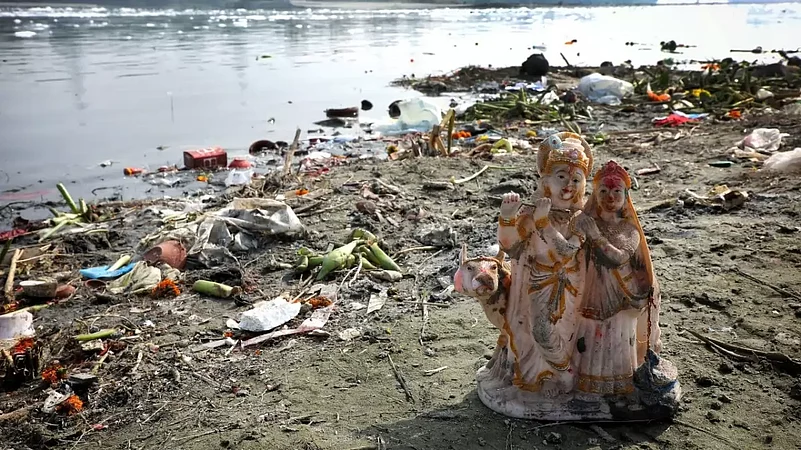Proper desilting of around 200 kilometres of Delhi's sewer line network is the biggest challenge being faced in the cleaning of the Yamuna, officials told Lieutenant Governor VK Saxena at a high-level committee meeting on Tuesday.
Desilting Of 200 Km Of Sewer Lines Biggest Challenge In Cleaning Yamuna: Officials To Delhi LG
Saxena chaired the third meeting of the high-level committee for the rejuvenation of Yamuna, formed by the National Green Tribunal (NGT), at Asita East along the riverbank.

Saxena chaired the third meeting of the high-level committee for the rejuvenation of Yamuna, formed by the National Green Tribunal (NGT), at Asita East along the riverbank.
While work on various fronts has been undertaken in a time-bound manner with the goal of concrete achievements by June 30, when the NGT will take stock of the progress, the biggest "road block and challenge" being faced is the desilting of approximately 200 kilometres of trunk and peripheral sewer lines, according to an official statement.
"Gross inaction and neglect on the part of the Delhi Jal Board (DJB), which had not undertaken any desilting work for the past 8-10 years, had resulted in the sewer lines getting choked. The sewer lines were choked up to 80-90 per cent with not only sewage but also boulders and municipal solid waste," the statement said.
While 90.34 kilometres of sewer lines were projected to be cleaned by June, the remaining 110 kilometres were expected to be cleaned by September. The LG directed officials to take up the desilting work on a mission mode and complete it within the stipulated time frame, the statement said.
It was pointed out at the meeting that the level of pollution in the Yamuna on various perimeters has gone down in the last two-three months, especially due to interventions in the Najafgarh Drain, the statement added.
The LG asked the DJB to expedite the desilting of the entire 200-km length of the sewer lines. He also directed for trapping all 242 drains on the records of agencies and another 238 that are not on the records of any agency.
The meeting also discussed a 100-per cent treatment of the sewage generated in the city, the gaps therein and the way forward for the DJB, the sewage network in unauthorised colonies and industrial effluent management, among other issues.
- Previous Story
 Elections 2024: Ashok Tanwar Joins Congress Again; Sehwag Endorses Congress Candidate In Haryana
Elections 2024: Ashok Tanwar Joins Congress Again; Sehwag Endorses Congress Candidate In Haryana - Next Story
























